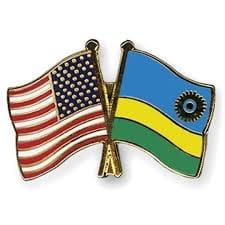APA – Kigali (Rwanda) The Rwandan government has said that it will seek clarification from Washington to ascertain whether its statement on the latest security situation in Eastern Democratic Republic of Congo (DRC) represents an abrupt shift in policy, or simply a lack of internal coordination.
The official statement obtained by APA Monday in Kigali recalls that DRC has launched massive combat operations in North Kivu, in contravention of the decisions of regional mechanisms, and clearly aims to expel M23 and Congolese Tutsi civilians into neighboring countries, working in concert with the Democratic Forces for the Liberation of Rwanda (FDLR), a Rwandan ethnic militia which is directly linked to the genocide against the Tutsi in Rwanda in 1994.
The reaction by the Rwandan Government comes after the U.S. condemned Saturday Rwanda’s support of the armed M23 group in eastern Congo, whose rebellion has caused the displacement of hundreds of thousands of people, and called on the rebel group to “cease hostilities.”
In addition, the U.S. State Department in a statement strongly criticized “the worsening violence … caused by the actions of the Rwanda-backed, U.S.- and UN-sanctioned M23 armed group.” It called on Rwanda “to immediately withdraw all Rwanda Defense Force personnel from the (Congo) and remove its surface-to-air missile systems,” which it said threatened civilian lives and peacekeepers. It also urged the rebels to retreat from their current positions near two urban areas in Congo’s North Kivu province.
In a statement, the Rwandan Government points out that the recent M23 advances are due to the DRC’s decision to expel the East African Community Regional Force in December 2023, which oversaw ceasefire and withdrawal efforts.
According to the statement, protecting the rights and lives of Congolese Tutsi is the responsibility of the Democratic Republic of Congo. The consistent failure to do so has exposed the entire Great Lakes Region to thirty years of conflict and instability. “Hundreds of thousands of Congolese Tutsi have lived as refugees in East Africa for decades, essentially forgotten.”
Rwandan authorities recall that hate speech and crude tribalism have also become the currency of Congolese politics under the administration of President Félix Tshisekedi, and ethnic discrimination and targeted arrests and killings have become routine. FDLR is fully integrated into the Congolese Armed Forces (FARDC), as repeatedly documented by the UN Group of Experts.
The statement issued by the U.S. Department of State on 17 February 2024 fundamentally distorts these realities, and stands in puzzling contradiction with the substance and tone of the confidence-building process initiated by the U.S. Director of National Intelligence in November 2023, which created a productive framework for de-escalation. Rwanda will seek clarification from the U.S. Government to ascertain whether its statement represents an abrupt shift in policy, or simply a lack of internal coordination.
It was the U.S. Department of State which in December 2001 added FDLR – then known as “ALIR a.k.a. Interahamwe, ex-FAR” – to the Terrorist Exclusion List under the provisions of the Patriot Act, after the group murdered, and in some cases raped, eight Western tourists in Bwindi, Uganda, including two Americans.
“To characterize this genocidal and terrorist outfit merely as an “armed group named as a ‘negative force’ by regional bodies and the government of the DRC” is a shocking and cynical act of realpolitik, which calls into question the ability of the United States to serve as a credible mediator in the Great Lakes Region,” reads part of the statement.
According to Rwandan officials, DR Congo support to FDLR is a matter of state policy, not the choice of individual actors.
Ending Congolese state support for FDLR, and ensuring their demobilization and repatriation to Rwanda, is a non-negotiable requirement to protect Rwanda’s territorial integrity and guarantee the preservation of our hard-won national unity for future generations. Accordingly, Rwanda reserves the right to take any legitimate measures to defend our country, so long as this threat exists, it said.
CU/abj/APA


